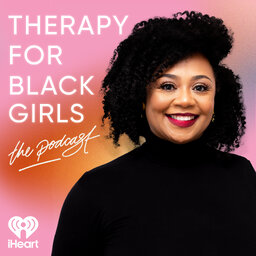Session 66: All the Details About ADHD
Today's episode gives you the rundown on everything you ever wanted to know about ADHD, Attention Deficit Hyperactivity Disorder. For this conversation, I was joined by Dr. Dawn Kamilah Brown, a double-board certified child, adolescent and adult psychiatrist in Texas. Dr. Dawn and I chatted about the symptoms of ADHD, why the diagnosis is often missed, how to know if your child might need to be evaluated, treatment for ADHD, and she clears up some common misconceptions about medication.
Learn more about your ad-choices at https://www.iheartpodcastnetwork.com
In 1 playlist(s)
Therapy for Black Girls
The Therapy for Black Girls podcast is a weekly conversation with Dr. Joy Harden Bradford, a license…Social links
Follow podcast
Recent clips

Session 452: Is Having a Boyfriend Embarrassing Now? Romance, Identity & Online Culture
51:20

Session 451: Student Loan Forgiveness & Reclassifying Degrees
48:49

Session 450: Reproductive Psychiatry
45:02
 Therapy for Black Girls
Therapy for Black Girls